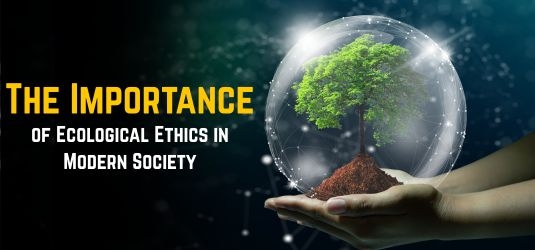
The urban world is facing rapid change, consumption, and growing pressure on natural ecosystems. In these times, Ecological Ethics in Modern Society is more important than ever. As cities expand and technology advances, how people act toward nature has effects far beyond their neighborhoods.
This blog explores why embracing ecological ethics is not just a personal choice but a collective responsibility for the survival of our urban spaces and the planet itself.
Understanding Ecological Ethics in Modern Society
Ecological Ethics in Modern Society is a field that explores what is right and wrong in our relationship with nature and non-human life. It considers not just the instrumental value of the natural world, but its inherent value as well. Traditionally, ethics focused on human needs, often at nature’s expense. However, contemporary ecological ethics urges us to broaden our moral community to include animals, plants, and ecosystems.
Here are some core principles and ideas that shape Ecological Ethics in Modern Society:
Intrinsic value: Natural entities and ecosystems have worth simply by existing, independent of their usefulness to humans.
Interconnectedness: Humans are deeply connected to the natural world, and every action affects all parts of the ecosystem.
Responsibility: Individuals and organizations have a moral duty to act as caretakers, protecting biodiversity and resources for current and future generations.
Sustainability: We must meet present needs without compromising the ability of future generations to meet their own needs, balancing growth and environmental protection.
Environmental justice: Ecological ethics calls for fair distribution of environmental benefits and burdens, ensuring no group bears an unfair share of harm
By redefining our values through Ecological Ethics in Modern Society, we lay the foundation for more sustainable, just, and resilient cities.
Why Urban Residents Must Practice Ecological Ethics
People in urban areas have a unique role in shaping environmental futures. Here are some reasons why ecological ethics in modern society are vital for city dwellers:
Urban residents often have large carbon footprints due to transportation, energy use, and consumption patterns.
Cities generate the majority of the world’s waste and consume most of its resources.
Practicing ecological ethics means reducing water and energy use, supporting public transit, and choosing sustainable products.
By valuing green spaces and native wildlife, urbanites can protect urban ecosystems that provide clean air and cool temperatures.
Ecological ethics fosters community initiatives such as recycling drives, urban gardening, and nature education among city children.
When the people of cities adopt Ecological Ethics in Modern Society, urban spaces become greener, cleaner, and better places to live.
Key Challenges and Solutions
Putting Ecological Ethics in Modern Society into practice is not always simple. These are some economic, cultural, and informational barriers that can slow sustainable progress:
Economic pressures make it difficult for some to choose eco-friendly options if they are costlier or less accessible.
Urban cultures often prioritize immediate conveniences over long-term environmental concerns.
There is often a lack of awareness or education about how everyday urban actions affect distant ecosystems.
Policy and infrastructure may not always support sustainable everyday choices, such as reliable recycling systems or public transportation.
Balancing individual needs with the common good, especially among diverse urban populations, presents ongoing challenges.
Overcoming these challenges requires city governments, businesses, and people to work together. Strong policies, community programs, and widespread environmental education can help embed Ecological Ethics in Modern Society in daily urban life.
Final Thoughts
Ecological Ethics in Modern Society is essential for preserving nature and securing a livable future for generations to come. Urban residents must value nature, practice sustainable habits, and advocate for greener policies.
By making eco-friendly choices and spreading awareness, everyone can help cities become resilient and nature-friendly. Let us each take responsibility, support local green initiatives, and inspire others to follow ecological ethics.








